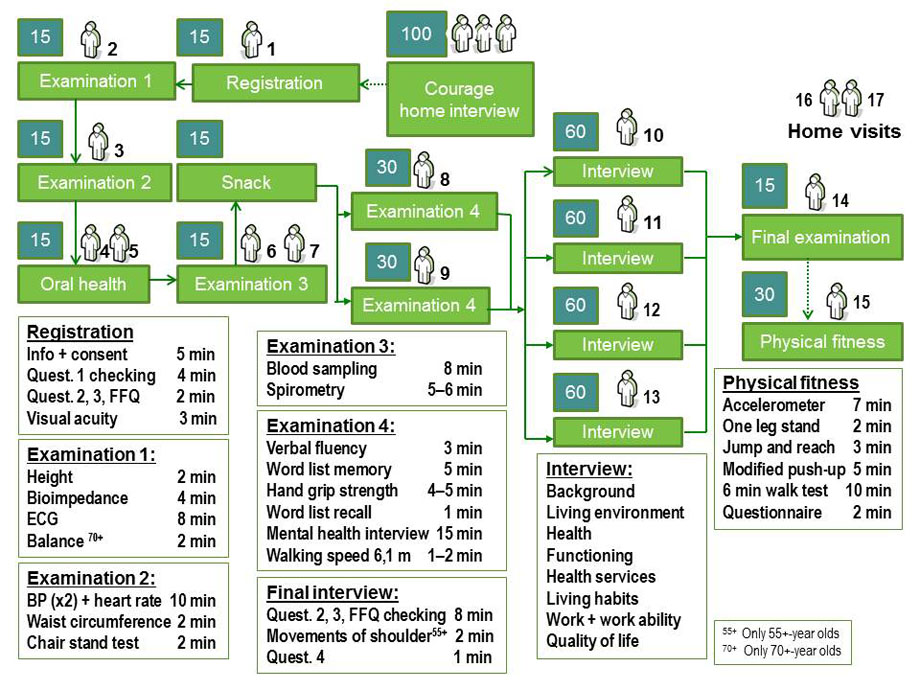Health 2011 in brief
Health 2011 is a follow-up survey based on the Health 2000 survey, which was conducted eleven years before it. The planning and coordination of the survey was coordinated by the National Institute for Health and Welfare (THL) in cooperation with an extensive network of specialists.
The data collection of the survey was carried out in 2011–2012. The participants of the Health 2000 survey who were still alive were invited to participate in the follow-up survey. In 2011, they were all at least 29 years of age. A new random sample of 18–28-year-old participants was also included in the study. The 920 persons who participated in the Mini Finland survey carried out in 1978–1980 and who had also been invited to the Mini Finland follow-up survey in 2001 were also asked to participate in the Health 2011 survey.
The persons included in the sample of the Health 2011 survey were also invited to participate in either the COURAGE (Collaborative Research on Ageing in Europe) study conducted in collaboration between three countries or a study on physical activity and fitness carried out in collaboration between the UKK Institute and the National Institute for Health and Welfare.
The actual Health 2011 survey comprised a health examination and a health interview carried out in connection with the examination as well as several questionnaire forms filled out by the participants.
The research forms of Health 2011 -survey

The health examination protocol of the Health 2011 survey
Data collection in the survey
The field work of the survey was carried out in stages as follows
- a separate health interview and a brief health examination for those who participated in the COURAGE study (around 1–2 weeks before the actual survey)
- a health examination and an interview at a local health centre or a similar place (around 2 weeks since sending the letter of invitation)
- a health or functional capacity examination at the home of participants who did not attend a health examination
- compiling key information based on a telephone interview and/or a follow-up survey on the participants who did not participate in stages 1–3
- compiling register data for follow-up purposes as well as for complementing the baseline data collected in the field study.
Invitations to the health examination were sent to all living persons who had been invited to the Health 2000 survey 11 years ago and who had not refused to participate in any further studies (n=8,135) as well as to 415 persons included in the new sample of young adults (18–28 years old, n=1,994). The health examinations were carried out in 59 municipalities. The majority of those included in the sample of young adults (1,579 persons) were only sent a postal survey.
The aim of the Health 2011 survey was to produce reliable data on the health, functional capacity and welfare of the population and its subgroups as well as any changes in these during the previous decade. A further important goal has been to produce information on the flexible determining factors of health and welfare that should be influenced based on a setting involving the follow-up of individuals.




